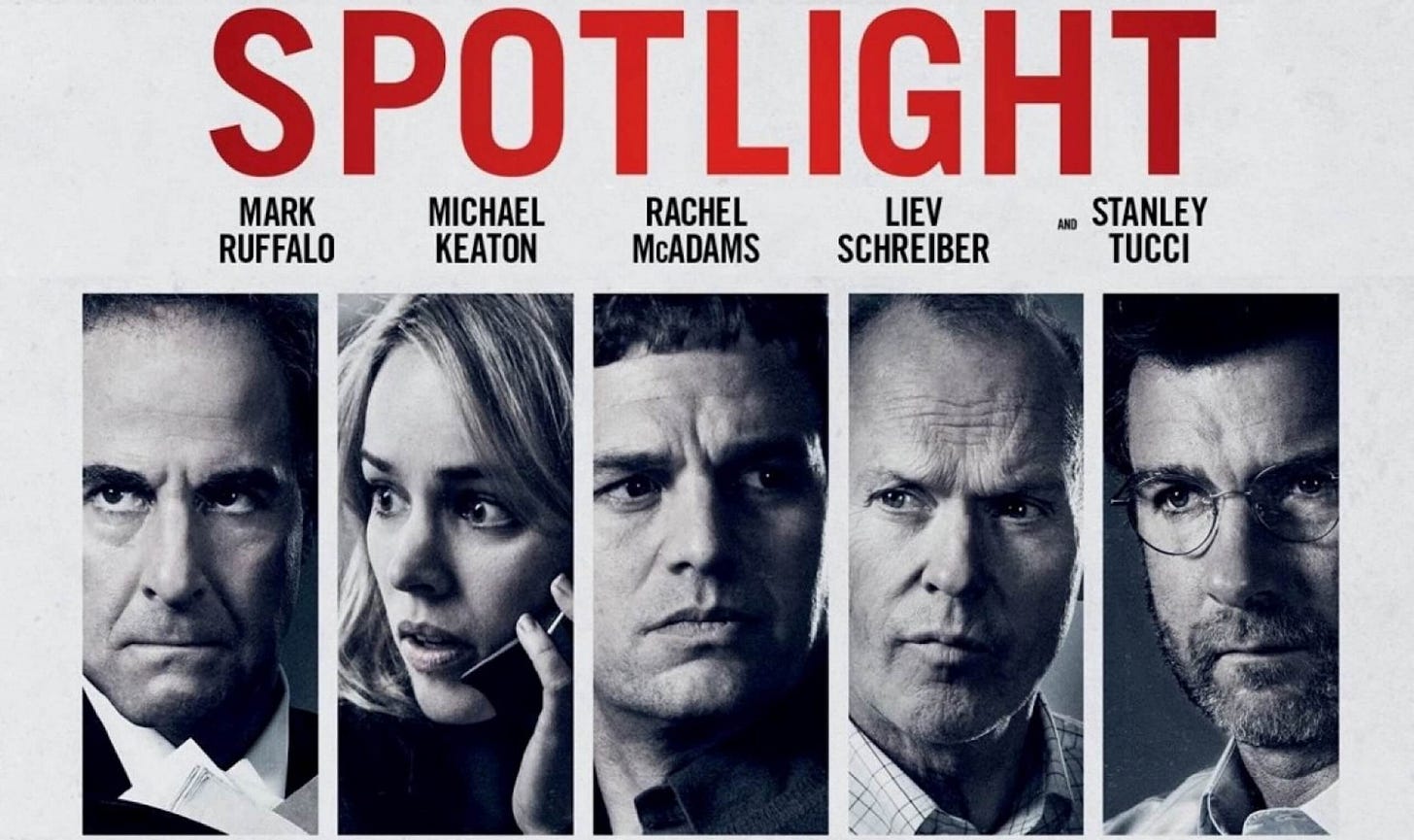Written by Tom McCarthy and Josh Singer
Starring Mark Ruffalo, Michael Keaton, Rachel McAdams
Released by Open Road Films, 2015
Rated R for language and graphic sexual references
Running time: 129 minutes
Author’s note: This review contains spoilers for Spotlight.
The 2015 docudrama Spotlight tells the mostly true story of the Boston Globe investigative journ…



